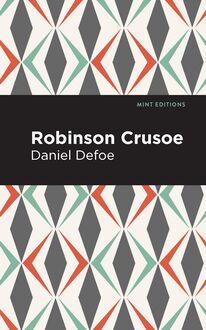-
 Univers
Univers
-
 Ebooks
Ebooks
-
 Livres audio
Livres audio
-
 Presse
Presse
-
 Podcasts
Podcasts
-
 BD
BD
-
 Documents
Documents
-
- Cours
- Révisions
- Ressources pédagogiques
- Sciences de l’éducation
- Manuels scolaires
- Langues
- Travaux de classe
- Annales de BEP
- Etudes supérieures
- Maternelle et primaire
- Fiches de lecture
- Orientation scolaire
- Méthodologie
- Corrigés de devoir
- Annales d’examens et concours
- Annales du bac
- Annales du brevet
- Rapports de stage
La lecture à portée de main
Vous pourrez modifier la taille du texte de cet ouvrage
Découvre YouScribe en t'inscrivant gratuitement
Je m'inscrisDécouvre YouScribe en t'inscrivant gratuitement
Je m'inscrisEn savoir plus
Vous pourrez modifier la taille du texte de cet ouvrage
En savoir plus

Description
Spy-catcher Chauvelin travels to England to find Sir Percy Blakeney, the Scarlet Pimpernel, and take him back to France where he’ll be put to death. With help from a struggling actress, Chauvelin attempts to bring the hero to justice.
Sir Percy Blakeney and his wife, Marguerite have left France and are currently staying in England. Following the events of the previous book, the French officer Chauvelin is even more committed to the capture of the elusive Scarlet Pimpernel. He hires a young actress, Désirée Candielle, to help manipulate both Marguerite and Sir Percy. When the parties collide, Chauvelin and Sir Percy are forced into a duel that has potentially fatal consequences for everyone involved.
The Elusive Pimpernel is another entry in the popular Scarlet Pimpernel series. It gives a better look at what drives the villainous Chauvelin. With the addition of his partner, Désirée, this is a multilayered story with higher stakes and a more dangerous outcome.
With an eye-catching new cover, and professionally typeset manuscript, this edition of The Elusive Pimpernel is both modern and readable.
Sujets
Informations
| Publié par | Mint Editions |
| Date de parution | 02 mars 2021 |
| Nombre de lectures | 0 |
| EAN13 | 9781513277172 |
| Langue | English |
| Poids de l'ouvrage | 2 Mo |
Informations légales : prix de location à la page 0,0500€. Cette information est donnée uniquement à titre indicatif conformément à la législation en vigueur.
Extrait
The Elusive Pimpernel
Baroness Emmuska Orczy
The Elusive Pimpernel was first published in 1908.
This edition published by Mint Editions 2021.
ISBN 9781513272177 | E-ISBN 9781513277172
Published by Mint Editions®
minteditionbooks.com
Publishing Director: Jennifer Newens
Design & Production: Rachel Lopez Metzger
Project Manager: Micaela Clark
Typesetting: Westchester Publishing Services
C ONTENTS I . P ARIS : 1793 II . A R ETROSPECT III . E X- A MBASSADOR C HAUVELIN IV . T HE R ICHMOND G ALA V . S IR P ERCY AND H IS L ADY VI . F OR THE P OOR OF P ARIS VII . P REMONITION VIII . T HE I NVITATION IX . D EMOISELLE C ANDEILLE X . L ADY B LAKENEY’S R OUT XI . T HE C HALLENGE XII . T IME— P LACE— C ONDITIONS XIII . R EFLECTIONS XIV . T HE R ULING P ASSION XV . F AREWELL XVI . T HE P ASSPORT XVII . B OULOGNE XVIII . N O. 6 XIX . T HE S TRENGTH OF THE W EAK XX . T RIUMPH XXI . S USPENSE XXII . N OT D EATH XXIII . T HE H OSTAGE XXIV . C OLLEAGUES XXV . T HE U NEXPECTED XXVI . T HE T ERMS OF THE B ARGAIN XXVII . T HE D ECISION XXVIII . T HE M IDNIGHT W ATCH XXIX . T HE N ATIONAL F ETE XXX . T HE P ROCESSION XXXI . F INAL D ISPOSITIONS XXXII . T HE L ETTER XXXIII . T HE E NGLISH S PY XXXIV . T HE A NGELUS XXXV . M ARGUERITE
I
P ARIS: 1793
T here was not even a reaction.
On! ever on! in that wild, surging torrent; sowing the wind of anarchy, of terrorism, of lust of blood and hate, and reaping a hurricane of destruction and of horror.
On! ever on! France, with Paris and all her children still rushes blindly, madly on; defies the powerful coalition,—Austria, England, Spain, Prussia, all joined together to stem the flow of carnage,—defies the Universe and defies God!
Paris this September 1793!—or shall we call it Vendemiaire, Year I. of the Republic?—call it what we will! Paris! a city of bloodshed, of humanity in its lowest, most degraded aspect. France herself a gigantic self-devouring monster, her fairest cities destroyed, Lyons razed to the ground, Toulon, Marseilles, masses of blackened ruins, her bravest sons turned to lustful brutes or to abject cowards seeking safety at the cost of any humiliation.
That is thy reward, oh mighty, holy Revolution! apotheosis of equality and fraternity! grand rival of decadent Christianity.
Five weeks now since Marat, the bloodthirsty Friend of the People, succumbed beneath the sheath-knife of a virgin patriot, a month since his murderess walked proudly, even enthusiastically, to the guillotine! There has been no reaction—only a great sigh! … Not of content or satisfied lust, but a sigh such as the man-eating tiger might heave after his first taste of long-coveted blood.
A sigh for more!
A king on the scaffold; a queen degraded and abased, awaiting death, which lingers on the threshold of her infamous prison; eight hundred scions of ancient houses that have made the history of France; brave generals, Custine, Blanchelande, Houchard, Beauharnais; worthy patriots, noble-hearted women, misguided enthusiasts, all by the score and by the hundred, up the few wooden steps which lead to the guillotine.
An achievement of truth!
And still that sigh for more!
But for the moment,—a few seconds only,—Paris looked round her mighty self, and thought things over!
The man-eating tiger for the space of a sigh licked his powerful jaws and pondered!
Something new!—something wonderful!
We have had a new Constitution, a new Justice, new Laws, a new Almanack!
What next?
Why, obviously!—How comes it that great, intellectual, aesthetic Paris never thought of such a wonderful thing before?
A new religion!
Christianity is old and obsolete, priests are aristocrats, wealthy oppressors of the People, the Church but another form of wanton tyranny.
Let us by all means have a new religion.
Already something has been done to destroy the old! To destroy! always to destroy! Churches have been ransacked, altars spoliated, tombs desecrated, priests and curates murdered; but that is not enough.
There must be a new religion; and to attain that there must be a new God.
“Man is a born idol-worshipper.”
Very well then! let the People have a new religion and a new God.
Stay!—Not a God this time!—for God means Majesty, Power, Kingship! everything in fact which the mighty hand of the people of France has struggled and fought to destroy.
Not a God, but a goddess.
A goddess! an idol! a toy! since even the man-eating tiger must play sometimes.
Paris wanted a new religion, and a new toy, and grave men, ardent patriots, mad enthusiasts, sat in the Assembly of the Convention and seriously discussed the means of providing her with both these things which she asked for.
Chaumette, I think it was, who first solved the difficulty:—Procureur Chaumette, head of the Paris Municipality, he who had ordered that the cart which bore the dethroned queen to the squalid prison of the Conciergerie should be led slowly past her own late palace of the Tuileries, and should be stopped there just long enough for her to see and to feel in one grand mental vision all that she had been when she dwelt there, and all that she now was by the will of the People.
Chaumette, as you see, was refined, artistic;—the torture of the fallen Queen’s heart meant more to him than a blow of the guillotine on her neck.
No wonder, therefore, that it was Procureur Chaumette who first discovered exactly what type of new religion Paris wanted just now.
“Let us have a Goddess of Reason,” he said, “typified if you will by the most beautiful woman in Paris. Let us have a feast of the Goddess of Reason, let there be a pyre of all the gew-gaws which for centuries have been flaunted by overbearing priests before the eyes of starving multitudes, let the People rejoice and dance around that funeral pile, and above it all let the new Goddess tower smiling and triumphant. The Goddess of Reason! the only deity our new and regenerate France shall acknowledge throughout the centuries which are to come!”
Loud applause greeted the impassioned speech.
“A new goddess, by all means!” shouted the grave gentlemen of the National Assembly, “the Goddess of Reason!”
They were all eager that the People should have this toy; something to play with and to tease, round which to dance the mad Carmagnole and sing the ever-recurring “Ca ira.”
Something to distract the minds of the populace from the consequences of its own deeds, and the helplessness of its legislators.
Procureur Chaumette enlarged upon his original idea; like a true artist who sees the broad effect of a picture at a glance and then fills in the minute details, he was already busy elaborating his scheme.
“The goddess must be beautiful… not too young… Reason can only go hand in hand with the riper age of second youth… she must be decked out in classical draperies, severe yet suggestive… she must be rouged and painted… for she is a mere idol… easily to be appeased with incense, music and laughter.”
He was getting deeply interested in his subject, seeking minutiae of detail, with which to render his theme more and more attractive.
But patience was never the characteristic of the Revolutionary Government of France. The National Assembly soon tired of Chaumette’s dithyrambic utterances. Up aloft on the Mountain, Danton was yawning like a gigantic leopard.
Soon Henriot was on his feet. He had a far finer scheme than that of the Procureur to place before his colleagues. A grand National fete, semi-religious in character, but of the new religion which destroyed and desecrated and never knelt in worship.
Citizen Chaumette’s Goddess of Reason by all means—Henriot conceded that the idea was a good one—but the goddess merely as a figure-head: around her a procession of unfrocked and apostate priests, typifying the destruction of ancient hierarchy, mules carrying loads of sacred vessels, the spoils of ten thousand churches of France, and ballet girls in bacchanalian robes, dancing the Carmagnole around the new deity.
Public Prosecutor Foucquier Tinville thought all these schemes very tame. Why should the People of France be led to think that the era of a new religion would mean an era of milk and water, of pageants and of fireworks? Let every man, woman, and child know that this was an era of blood and again of blood.
“Oh!” he exclaimed in passionate accents, “would that all the traitors in France had but one head, that it might be cut off with one blow of the guillotine!”
He approved of the National fete, but he desired an apotheosis of the guillotine; he undertook to find ten thousand traitors to be beheaded on one grand and glorious day: ten thousand heads to adorn the Place de la Revolution on a great, never-to-be-forgotten evening, after the guillotine had accomplished this record work.
But Collot d’Herbois would also have his say. Collot lately hailed from the South, with a reputation for ferocity unparalleled throughout the whole of this horrible decade. He would not be outdone by Tinville’s bloodthirsty schemes.
He was the inventor of the “Noyades,” which had been so successful at Lyons and Marseilles. “Why not give the inhabitants of Paris one of these exhilarating spectacles?” he asked with a coarse, brutal laugh.
Then he explained his invention, of which he was inordinately proud. Some two or three hundred traitors, men, women, and children, tied securely together with ropes in great, human bundles and thrown upon a barge in the middle of the river: the barge with a hole in her bottom! not too large! only sufficient to cause her to sink slowly, very slowly, in sight of the crowd of delighted spectators.
The cries of the women and children, and even of the men, as they felt the waters rising and gradually enveloping them, as they felt themselves powerless even for a fruitless struggle, had proved most exhilarating, so Citizen Collot declared, to the hearts of the true patriots of Lyons.
Thus the
-
 Univers
Univers
-
 Ebooks
Ebooks
-
 Livres audio
Livres audio
-
 Presse
Presse
-
 Podcasts
Podcasts
-
 BD
BD
-
 Documents
Documents
-
Jeunesse
-
Littérature
-
Ressources professionnelles
-
Santé et bien-être
-
Savoirs
-
Education
-
Loisirs et hobbies
-
Art, musique et cinéma
-
Actualité et débat de société
-
Jeunesse
-
Littérature
-
Ressources professionnelles
-
Santé et bien-être
-
Savoirs
-
Education
-
Loisirs et hobbies
-
Art, musique et cinéma
-
Actualité et débat de société
-
Actualités
-
Lifestyle
-
Presse jeunesse
-
Presse professionnelle
-
Pratique
-
Presse sportive
-
Presse internationale
-
Culture & Médias
-
Action et Aventures
-
Science-fiction et Fantasy
-
Société
-
Jeunesse
-
Littérature
-
Ressources professionnelles
-
Santé et bien-être
-
Savoirs
-
Education
-
Loisirs et hobbies
-
Art, musique et cinéma
-
Actualité et débat de société
- Cours
- Révisions
- Ressources pédagogiques
- Sciences de l’éducation
- Manuels scolaires
- Langues
- Travaux de classe
- Annales de BEP
- Etudes supérieures
- Maternelle et primaire
- Fiches de lecture
- Orientation scolaire
- Méthodologie
- Corrigés de devoir
- Annales d’examens et concours
- Annales du bac
- Annales du brevet
- Rapports de stage




















